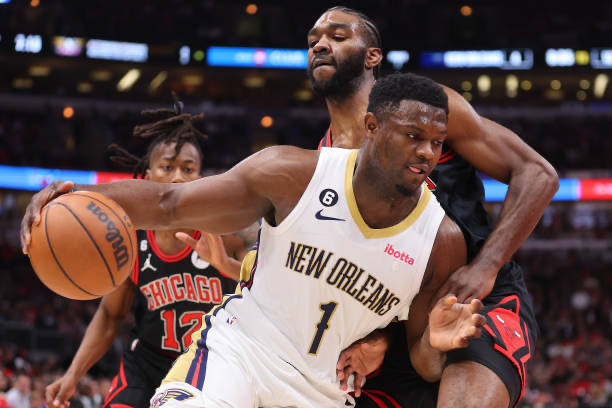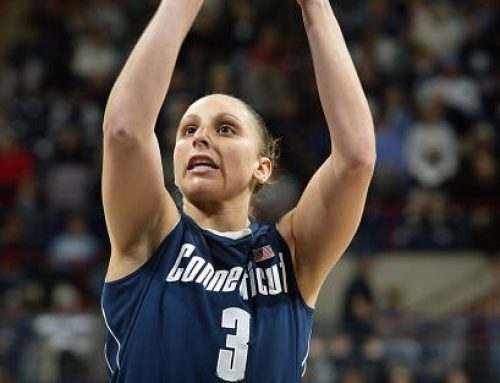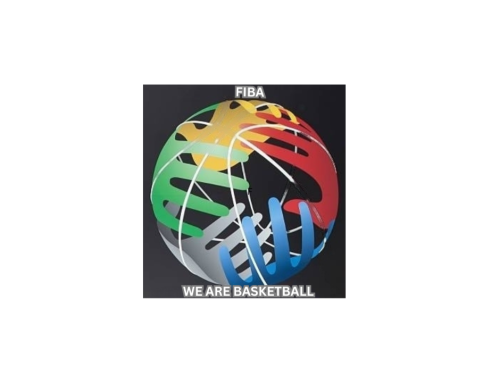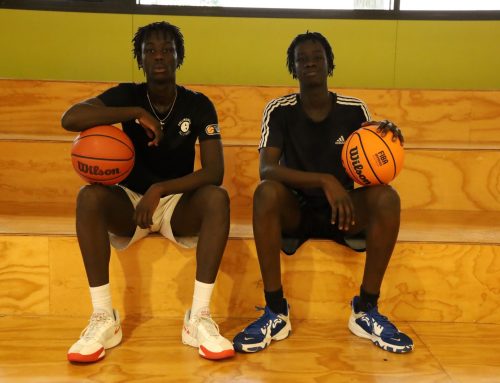
Basketball Players in social media scandals – victims or fools?
Hi In the age of social media, the personal lives of public figures, including basketball stars, often become subject to intense scrutiny. The recent incident involving Zion Williamson, where his private matters were exposed on social media, serves as a reminder for athletes to exercise caution in navigating their personal lives. In this article, we explore such stories and provide valuable tips for basketball players on how to protect their privacy and avoid airing their laundry in public.
Zion Williamson, a basketball player for the New Orleans Pelicans, became involved in a public dispute with pornstar and OnlyFans personality Moriah Mills. The conflict began when Mills claimed on Twitter that she might also be pregnant with Williamson’s child, suggesting she had been involved with him since 2021. Mills also made derogatory remarks about Williamson’s girlfriend.
The situation escalated when Mills alleged that she had been threatened by a relative of Williamson’s girlfriend and expressed concerns for her safety. Meanwhile, Williamson remained silent but took part in a charitable act, donating a significant amount of money to a school program.
Mills continued to make claims on social media, including allegations that Williamson got his girlfriend pregnant while she was recovering from surgery. She posted alleged text message conversations with Williamson, asking him to take responsibility and undergo a DNA test.
So, apart from the obvious what else did Williamson do wrong?
In this modern age of technology we are seeing increasing breaches into privacy on a scale never even anticipated. What started as a moment of joy turned into a slaugtherfest of personalities.
We asked our resident privacy expert Dr Goodlaw to give us some insights into this;
“Privacy in the age of social media can be a complex and evolving concept. Ultimately, maintaining privacy in the digital age requires a balance between personal expression and protecting one’s personal life. Athletes must be aware of the potential consequences of sharing too much or engaging in controversial situations online and make thoughtful choices to safeguard their privacy”
But isn’t this just the point? How do you safeguard privacy when we live in a day and age where privacy is almost synomous to democracy.
“Well,” said Dr Goodlaw, “it may not seem so easy but its not impossible because if it was, we would have seen so much more scandals than we have seen already”.
Hmm not so sure what the doctor was alluding to there however he did leave us with some pointers.
- Personal Boundaries: Athletes need to establish clear personal boundaries when it comes to sharing their private lives on social media. They should carefully consider what aspects of their personal life they want to keep private and separate from their public persona.
- Selective Sharing: Being mindful of what is shared online is crucial. Athletes should think twice before posting sensitive or intimate details about their personal relationships, family matters, or controversial opinions. It’s important to maintain a level of discretion and avoid oversharing.
- Secure Social Media Settings: Players should familiarize themselves with the privacy settings on their social media platforms and adjust them accordingly. They can control who can view their posts, limit access to personal information, and utilize features that filter comments or block certain users.
- Be Wary of Relationships: Athletes should exercise caution when engaging in personal relationships, especially with individuals who may seek to exploit their fame or create public controversies. It’s essential to establish trust and maintain open communication with partners to avoid potential misunderstandings or conflicts.
- Thoughtful Interactions: Athletes should be mindful of their interactions on social media. Engaging in respectful and positive conversations can help maintain a professional image. It’s important to refrain from engaging in online disputes, arguments, or making derogatory remarks about others.
- Professional Support: Seeking guidance from public relations professionals or social media managers can be beneficial. These experts can provide valuable advice on managing online presence, dealing with potential scandals, and developing strategies to protect personal privacy.
- Regular Assessments: Athletes should periodically review their online presence and assess the content associated with their name. They can conduct searches to identify any potentially damaging information or false claims and take appropriate action to address or rectify the situation.
So there you have it, the bottom line is put some more thought into what you are doing when it comes to social media. The conclusion though is still uncertain as this is all easier said than done!
Zion Williamson isn’t alone in this type of social media explosion though. Here are a few more over the years involving social media.
- J.R. Smith’s “Supreme” Tattoo: In 2018, J.R. Smith, a player for the Cleveland Cavaliers at the time, received attention for getting a tattoo of the Supreme logo on his leg. This caused controversy as the NBA has strict rules regarding players promoting brands that are not official league sponsors. Smith was eventually fined by the league for the tattoo.
- Joel Embiid’s Social Media Fines: Joel Embiid, a player for the Philadelphia 76ers, has been involved in multiple social media controversies. He has faced fines from the NBA for using inappropriate language on social media and making derogatory comments about other players.
- D’Angelo Russell’s Snapchat Incident: In 2016, when D’Angelo Russell was with the Los Angeles Lakers, he was involved in a social media scandal after a video he recorded of teammate Nick Young discussing infidelity went public on Snapchat without Young’s consent. The incident caused tension within the team and led to a breakdown of trust among players.
- Hassan Whiteside’s Snapchat Venting: In 2017, Miami Heat player Hassan Whiteside faced criticism for using Snapchat to vent his frustrations about his playing time and team-related issues. His public complaints on social media led to backlash from fans and the media.
- Kevin Durant’s Fake Twitter Account: In 2017, it was revealed that NBA player Kevin Durant had been using anonymous social media accounts to defend himself and criticize others. Durant’s activity on Twitter was discovered when he accidentally posted a tweet criticizing his former team, the Oklahoma City Thunder, while logged into his personal account instead of his anonymous one.
- J.R. Smith’s Supposed Hack: In 2013, J.R. Smith, an NBA player at the time for the New York Knicks, claimed that his Twitter account had been hacked after a controversial tweet was sent from his account. The tweet contained a reference to a popular adult website, leading to speculation and criticism.
Follow the story. Subscribe to Basketball News Australia for further updates.



